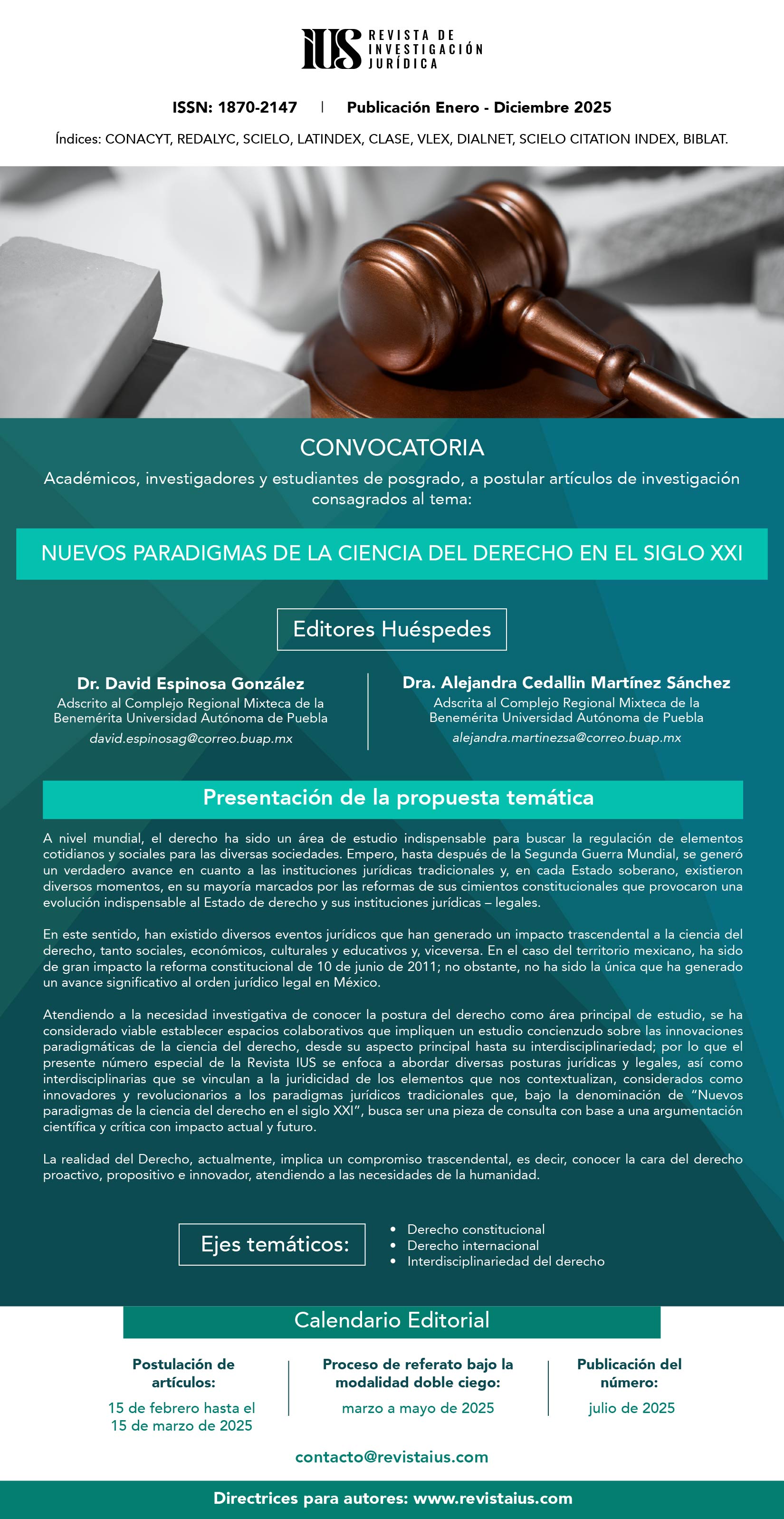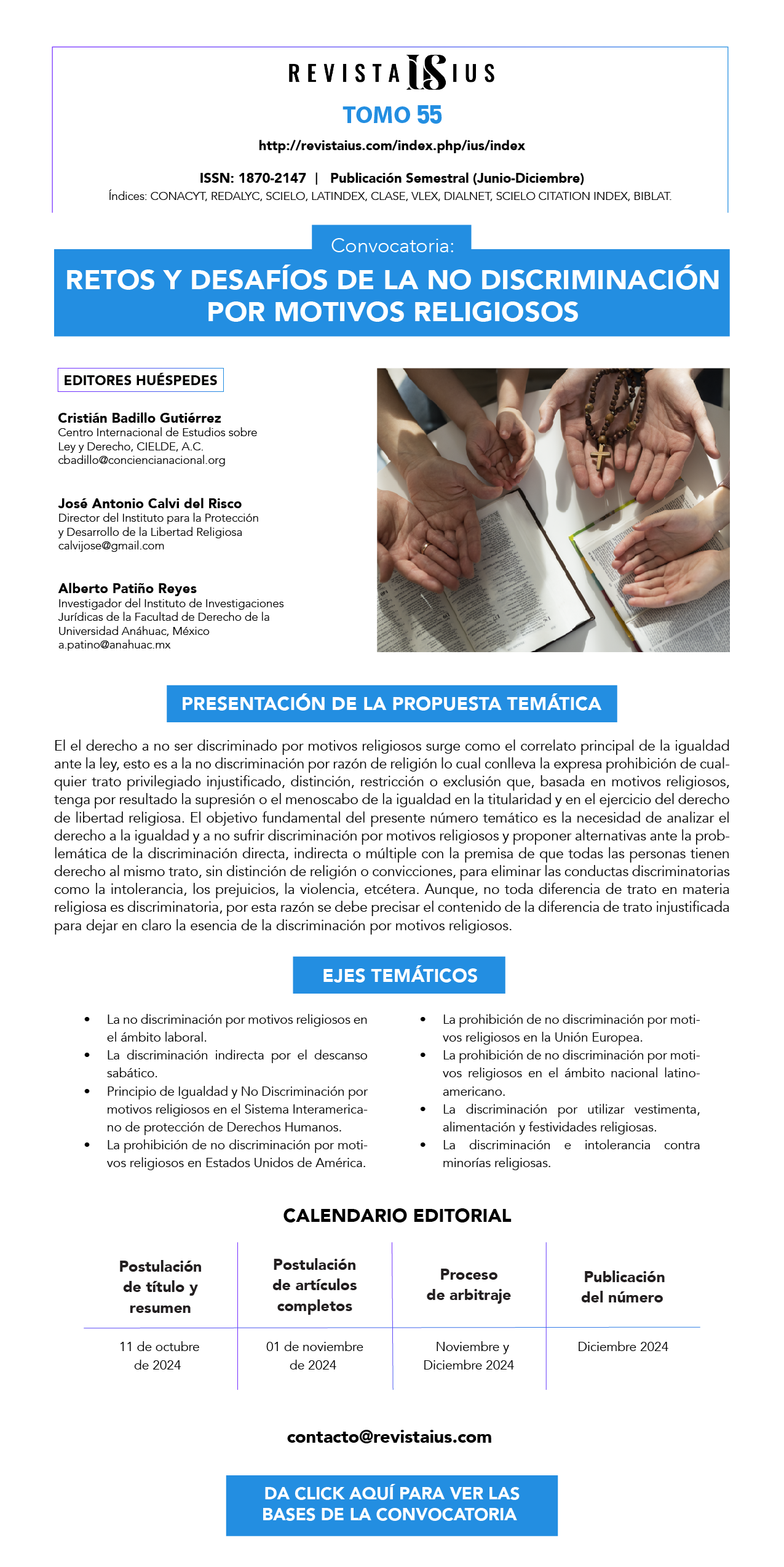Justificación para la concesión de beneficios de libertad anticipada
DOI:
https://doi.org/10.35487/rius.v1i19.2007.184Abstract
En la actualidad la privación de la libertad se ha convertido en la sanción más importante, cuantitativa y cualitativamente, debido a que el Estado deposita en la cárcel su acción correctiva y utiliza a la prisión frecuentemente como una de las penas de mayor importancia. Esta sanción encuentra su fundamento constitucional en el artículo 18, en donde se establece que sólo por delito que merezca pena corporal, habrá lugar a prisión preventiva; pero contrariamente también en este precepto legal se impone como obligación a la federación y a los estados, organizar el sistema penal bajo un régimen basado en el trabajo, la capacitación para el mismo y la educación como principios rectores del proceso de readaptación social del delincuente. Esta norma encierra en su contenido dos finalidades que tiene que cumplir el sistema penitenciario: en primer lugar firmemente se propone readaptar, capacitar para el trabajo, educar, dignificar a la persona; y en el sentido opuesto tiene que propiciar la reparación de daños causados a las víctimas y a la sociedad, siendo esto un gran reto. En este artículo se explora la idea de la necesidad de favorecer a los sancionados por diversos delitos con la libertad anticipada y que la sociedad realice un mayor esfuerzo por su readaptación social.
Downloads
References
www.jornada.unam.mx./1999 /mar99/990320
Published
Issue
Section
License
Revista IUS, published by the Legal Sciences Institute of Puebla A.C., is distributed under the Creative Commons Attribution-NonCommercial 4.0 International (CC BY-NC 4.0) license.
We authorize collaborators to upload a copy of their published work on their personal websites or any Open Access repository, provided that Revista IUS is specifically cited as the original source, indicating the year and issue of the respective example and adding the link to the webpage on which this publication can be freely consulted in toto and without charge: http://www.revistaius.com
Readers are free to:
Share, copy and redistribute the material via any medium or format.
The licensor cannot revoke these freedoms as long as you follow the license terms.
Under the following terms:
Attribution: You must give appropriate credit, provide a link to the license, and indicate if changes were made.
You may do so in any reasonable manner, but not in any way that suggests the licensor endorses you or your use.
NonCommercial – You may not use the material for commercial purposes.
If you remix, transform or build upon the licensed material, its distribution is not permitted.
Charges for managing articles: Revista IUS will not charge for receiving, processing or publishing articles (Article Processing Charge, or APC) submitted by authors.





